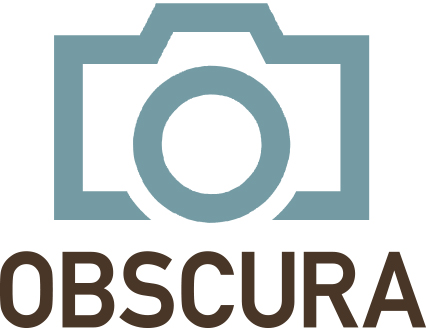9 Questions Interesting People Ask People They Meet
It all starts with having a genuine interest in the other person.
I remember early in my career, one of my biggest fears walking into a networking event to schmooze or meeting someone for a business lunch was boring the other person to tears in conversation.
I didn't want to be the windbag who dragged on forever, so I learned to be brief, to the point, and actually listen to the other person with all my being. I eventually avoided the mistake of talking about polarizing topics like politics or race, and learned to stay neutral, positive, and upbeat.
I began to tune in to my body language and voice tone to avoid sounding monotone, or looking like a bump on a log. I trained my brain to show emotions, laugh at people's jokes, smile when they smile, and make light of awkward situations.
The biggest lesson I learned in conversations with others.
But the biggest lesson for ensuring that I was being an interesting person who drew others in came down to asking the right questions. I found that this is what triggered authentic responses in the other person.
By showing curiosity about someone's story, accomplishments, passions, or interests, the law of reciprocity usually kicked in, and I had my turn to shine. There was a bonus attached to this strategy: Persuasion increased, which helped me steer the conversation in the direction I wanted it to go.
But here's the key: If you're in a conversation at a work-related function, or meeting someone to talk business for the first time, your best move is not to ask business-related questions; it's to discover common ties with that person that will steer the conversation back to the "work stuff" later in the conversation, but with a deeper connection.
In other words, get to know that person! To really exercise persuasiveness and make a quick connection that may have mutual benefits (and possibly make a new friend), I'll leave you with these questions. Granted, some may not be your ideal, icebreaking conversational starters, so use your best judgment when and where to use them to deepen the conversation.
9 questions for having great conversations
David Burkus, best-selling author of three books and an award-winning podcaster, has contributed the first four questions on this list from an interesting article he wrote for Harvard Business Review. The others come from our research, along with what other entrepreneurs and great conversationalists recommend:
1. What excites you right now?
As Burkus explains it, this question can go in many directions (work life, personal life, etc.) with a wide range of possible answers that may overlap into your life or work, which will open up the conversation further. And asking it allows for the other person to share something that he or she is passionate about.
2. What are you looking forward to?
Similar to the last one, but this is more forward-looking, which, says Burkus, allows for the other person "to choose from a bigger set of possible answers."
3. What's the best thing that's happened to you this year?
Same technique as the previous two, but this one goes back in time for the other person to reflect on something pivotal that may have changed the course of his or her life. It also opens up a wealth of answers to choose from, which may overlap into some of your own areas of interest or expertise for further discussion.
4. What's the most important thing I should know about you?
Because it can come across as a little direct, this is certainly not your first question, and it may not even be your third or fourth, but it "gives the broadest possible range from which they can choose," says Burkus. Use it in context, listen for clues, and wait for the right timing.
5. What's your story?
One of my personal favorites, this is open-ended enough to trigger an intriguing story--a journey to a foreign country, meeting a famous person, getting funded for the startup of your dreams, a special talent used for making the world a better place, etc. It's a question that immediately draws in the other person and lets him or her speak from the heart.
6. What is one of your defining moments?
This is another great question that invites the speaker to share on a deeper level, which builds momentum and rapport quicker. Obviously, a few casual questions before it helps set the mood for hearing about a profound moment or transition in that person's life.
7. Why did you choose your profession?
This assumes that, at some point, you dropped the mandatory "What do you do?" question. As a follow-up, it's a question that will reveal multiple layers of someone's journey. It speaks to people's values, what motivates them, and whether their work is their calling. It may also trigger a different, more thought-provoking response: Some people aren't happy in their jobs. By asking, you may be in the position to assist or mentor a person through a career or job transition.
8. What are you currently reading?
You may have the same authors and subjects in common, which will deepen your conversation. Also use this question to ask for book recommendations. You may find the conversation going down the path of exploring mutual book ideas to solve a workplace issue or implement a new business strategy.
9. How can I be most helpful to you right now?
To really add the most value to a conversation, once a level of comfort has been established, ask the other person how you can be most helpful to him or her, whether personally or professionally. You'll be amazed how pleasantly surprised people get by that thoughtful gesture, and how responsive they are in their answer. Your genuine willingness, no strings attached, to make yourself useful to others leads to more interesting, engaging, and real conversations that may lead to future opportunities.
In closing.
Remember, when you approach another person in conversation, the skill you want to use right off the bat is to immediately show sincere interest in that person. This will pave the way for a smooth conversation that can go places.
Whatever questions you decide to use, the important thing is to always ask open-ended questions and to avoid work-related questions or business questions until much, much later in the conversation. You'll be surprised by how seamless the transition is to discussing business, conducting a sales pitch, or exploring partnerships once both parties are into each other. Try it, and let me know what you think.




